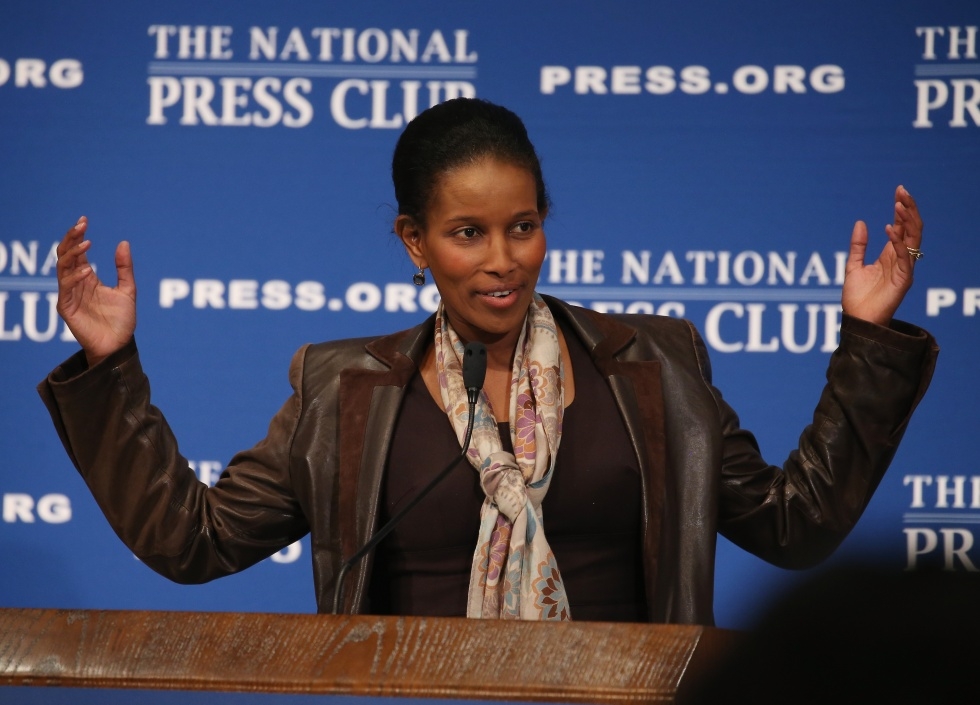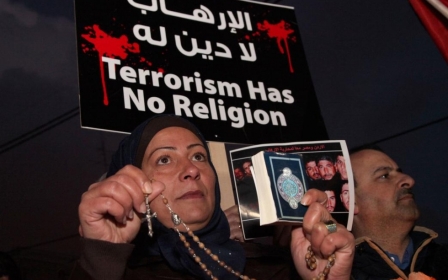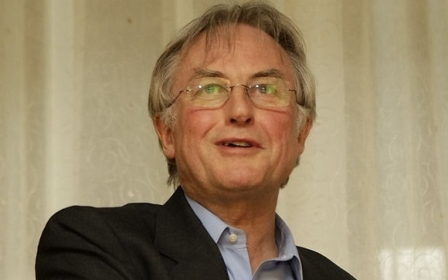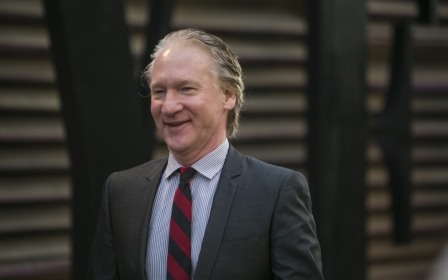Ayaan Hirsi Ali: Another book perpetuating the logic of hate

The reductionist logic of hate has a long tradition of using alarmist sophistry in polite mainstream discourse.
In 1925, Hitler published Mein Kampf, in which he warned, “If…the Jew is victorious over the other peoples of the world, his crown will be the funeral wreath of humanity.” He upheld the Protocols of the Elders of Zion, an epitome of anti-Semitic propaganda, declaring that “once this book has become the common property of a people, the Jewish menace may be considered as broken.”
In a 1946 book entitled Take Your Choice: Separation or Mongrelization, by Theodore Bilbo, a popular US Senator from Mississippi, wrote that “purity of race is a gift of God,” and the mixing of “the blood of the races,” was an attack on the “Divine plan of God.” Long before and long after Bilbo, there were prominent pundits who cited everything from scripture and law to polls and anecdotes as irrefutable evidence arguing in polite public discourse for the subjugation, marginalisation, or destruction of African Americans. On why black children should not receive adequate education, Georgia Gov. Allen Candler maintained that “God made them negroes and we cannot by education make them white folks.”
White was (is) taken for granted as inherently moral and superior, which is why the Native American tribes who survived the systematic genocide preceding the 1800s but who nonetheless had succumbed to European colonial religion and culture were called the “Five Civilized Tribes.” Their adoption of Christianity, however, did not mitigate their otherness, a problem that was debated in the halls of power and high centres of learning at the time. And from this polite mainstream political discourse of the 1800s, various plans and laws were enacted to complete the annihilation of this land’s native cultures and its rightful heirs. The Indian Removal Act was thus considered the only logical and moral choice.
In 1923, Vladimir Jabotinsky, a Russian Zionist who founded the Jewish Legion, published The Iron Wall, a polemic in which he argued that the militaristic taking of Palestine should “continue in defiance of the will of the native population,” whom he said were culturally “500 years behind us,” and that “they have neither our endurance nor our determination.”
Decades and many more such racist books into the fulfillment of this colonial project, in 2009, Rabbi Yitzhak Shapira, head of a well-funded, prominent and politically connected yishiva in Tel Aviv, wrote Torat Ha’Melech, a 230-page guidebook on the killing of non-Jews, who, he says, are "uncompassionate by nature" and should be killed in order to "curb their evil inclinations." Citing Jewish law, he provides “justification for killing babies if it is clear that they will grow up to harm us, and in such a situation they may be harmed deliberately, and not only during combat with adults."
This year, 2015, Ayaan Hirsi Ali published Heretic, which expands on her theory that Islam is “a destructive, nihilistic cult of death,” that must be defeated by Western culture, which she describes with embarrassingly sycophantic reverence, in stark contrast to her palpably visceral antipathy toward the Muslim East.
In over 250 pages, there is not a single redeeming quality to the faith held by one fifth of humanity. Rather, it is described unambiguously as wholly menacing. In the breathtaking essentialism, which characterises this entire book, Hirsi Ali describes the overwhelming majority of the world’s Muslims (whom she refers to as “Mecca Muslims”) as “indolent, and – crucially – lacking in the intellectual vigour” necessary to resist the seduction of violent extremism.
The best option for humanity, she says, is that Islam be abolished completely. Conceding the impracticality of the total destruction of Islam, she argues that a reformation is then the only viable avenue to save humanity from Islam. She believes that all Muslims have only one of two choices, either to completely renounce their faith, or abandon the parts (she does not specify which) that “reject the West’s modernity.” Note the utter lack of imagination that modernity might encompass anything but western values, or that morality might be anything but western.
Her principle reasoning is that Christianity went through a Reformation, which is why followers of Christianity and Judaism (in her mind) compose morally, intellectually and socially superior nations. The fact that a multitude of genocides and holocausts were perpetrated by western Christian nations centuries after the Reformation is completely ignored in this book.
When challenged in a debate on the wanton bloodletting by which Christianity was spread, she says that Christian violence is a thing of the ancient past. Likewise, her response to the fact that Islam ushered one of the most splendid enlightenment periods in human history was a one-sentence dismissal that that is ancient history. Yet large parts of her book are dedicated to describing ancient Islamic wars as evidence of Islam’s inherent violence. Her dismissal or amplification of ancient history is selective, at best.
Her central thesis is that Islam is incompatible with the notion of a functional modern society. As proof, she asserts that “Islam, as a religion, [is] responsible for 70 percent of bloodshed in the world.” It is a point of fact that the far greater proportion of blood being shed around the world is that of Muslims, including Myanmar, Palestine, Iraq, Libya, Afghanistan, Pakistan, Lebanon and Syria. The list of victims is long. Remarkably, she dismisses the idea that current local and regional wars in the Middle East are related to political, post-colonial or socioeconomic matters.
It is worth noting, in this regard, that the FBI reported that more than 90 percent of all terrorism in the United States was carried out by non-Muslims. A summary of that report was of no interest to mainstream media, nor to Ms Ali. Her summation does not include the persistent US bombing of Iraq in the 1990s, concomitant with barbaric sanctions led to the death of 500,000 children under the age of five, nor later the hundreds of thousands (or millions, whose counting?) who perished under US bombs in Iraq, Afghanistan or Pakistan in the last decade.
It does not include the five to six million Congolese (again, who’s counting?) who have been murdered at the hands of militias and despots directly and indirectly financed and supported by the West. Her accounting of terrorism does not include the Western bombing campaign (one of many around the world) that left hundreds of thousands destitute and devastated in Libya after NATO’s assault to murder Gaddafi, plunging that nation into chaos and internecine bloodshed. It does not include the thousands killed in Gaza from raining Israeli death.
Nowhere does she consider as terrorism the imprinted trauma of systematic and persistent night raids on Palestinian homes that drag children and their families from their beds. She does not consider as terrorism that one third of the black male population in the US can expect to be incarcerated in their lifetime, nor does she mention the systematic torture in Guantanamo as terrorism.
Does anything the West has done over the last 50 years constitute terrorism when it has devastated, dismantled, raped, robbed, and maimed countries throughout the Middle East, Africa, Asia, and South America? Is, for example, shooting down an Iranian civilian airliner, killing everyone on board (including 66 children) considered terrorism? One can easily account for horrendous crimes in our own lifetimes perpetrated by predominantly Christian and Jewish nations. But it is only the feeblest of minds that would conclude that Christianity or Judaism is the essential source of this massive assault on others.
Hirsi Ali asserts that the skill of critical thinking is a distinguishing feature of western culture. If that were really true – if popular western culture were truly marked by insightful, critical thought – there’d not be such a wide embrace for yet another essentialist book that, like this one, promulgates otherness and broad hatred and mistrust of such a large swath of humanity. There would instead be a nuanced examination of the complex social, historic, and political realities that shape these ancient societies in the fullness of their contradictions, problems, and richness.
I would argue that only when mainstream popular discourse finally learns to reject these reductionist, exclusivist, essentialist, chauvinist narratives, can we finally arrive at intelligent conversation that affords a concept of universal human dignity. Claiming that violence is inherent to any religion or any race or that moral superiority is inherent to any religion or any race, is stupidity in the extreme. It is inconceivable to me that this basic fact of our human condition remains so abstract to so many after so long.
As a woman, I can admire Ayaan Hirsi Ali’s resourcefulness, her tenacity and iron will. It is tremendously regretful that her talents have been employed to reduce all 1.6 billion of us into caricatures of morally base and intellectually dull natures.
Susan Abulhawa is an author and political commentator. Her debut novel MORNINGS IN JENIN (Bloomsbury, 2010) was an international bestseller, translated into 26 languages. Her forthcoming novel, THE BLUE BETWEEN SKY AND WATER, will be published in June (Bloomsbury, 2015).
The views expressed in this article belong to the author and do not necessarily reflect the editorial policy of Middle East Eye.
Photo: Ayaan Ali Hirsi at the National Press Club, Washington DC, April 2015 (AFP)
Middle East Eye propose une couverture et une analyse indépendantes et incomparables du Moyen-Orient, de l’Afrique du Nord et d’autres régions du monde. Pour en savoir plus sur la reprise de ce contenu et les frais qui s’appliquent, veuillez remplir ce formulaire [en anglais]. Pour en savoir plus sur MEE, cliquez ici [en anglais].





